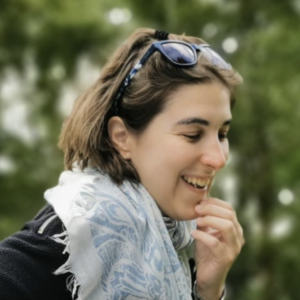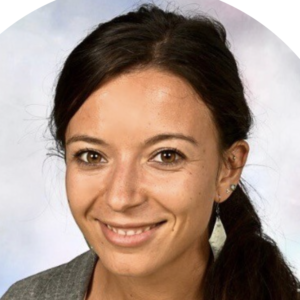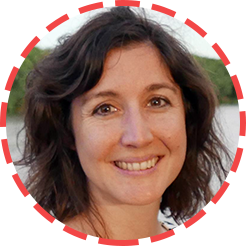If you want to know more about the IB Biology SL syllabus, you’re likely either enrolled in the course or thinking about choosing it as one of your standard-level subjects. Well, here we have summarised everything you need to know.
In particular, we break down the topics, both mandatory and additional ones, practicals, and differences between SL and HL.
This overview will walk you through these and other aspects of the IB Biology syllabus, quickly and simply.
Introduction to IB Biology Syllabus
The IB Biology SL syllabus is a list of course content and skills, which you learn during the two years of the Biology course.
The syllabus introduces six core topics as well as option topics, which cover a range of biological concepts and phenomena. It also includes a practical scheme of work – as a student, you will need to design and conduct investigations, collect and analyse data, as well as communicate your findings.
IB Biology SL syllabus is designed to stimulate the development of scientific inquiry skills, conceptual comprehension, and appreciation of the nature of science. It also helps to understand the role of Biology in the lives of every person and society as a whole.
IB Biology SL Syllabus Overview
The IB Biology SL syllabus consists of six core and four option topics along with a practical component. Overall, it takes 150 teaching hours to complete the course.
Core Topics
When it comes to the core topics, they are the following:
Cell Biology
First, you’ll explore the fundamental units of life – cells. As its name suggests, Cell Biology studies the structure and function of cells. Within 15 hours of study, you will learn about:
- The characteristics and diversity of cells;
- The ultrastructure and components of prokaryotic and eukaryotic cells;
- The functions and properties of cell membranes;
- The processes of cell division, differentiation, and specialization;
- The techniques and applications of microscopy and cell fractionation.
Molecular Biology
Next is molecular biology, which you will learn in class for 21 hours. While cell biology deals with the units of life, molecules are its building blocks. In this section, besides various types of molecules, you will find out about their interactions. In particular, you’ll get insight into:
- The structure and function of water, carbohydrates, lipids, proteins, and nucleic acids;
- The role and regulation of enzymes in metabolic pathways;
- The structure and replication of DNA;
- The transcription and translation of genetic information;
- The expression and modification of genes.
Genetics
Genetics is the study of inheritance and trait variation in living organisms. During the mandatory 15 hours, you’ll study the following topics:
- The structure and behaviour of chromosomes;
- The patterns and mechanisms of Mendelian inheritance;
- The sources and consequences of genetic variation;
- The methods and applications of genetic testing and screening;
- The ethical issues and implications of genetic research.
Ecology
Ecology focuses on the interactions and interdependence of organisms within their environments. You will have 12 hours of class time to learn about:
- The levels of organization and classification of ecosystems;
- The factors that affect the distribution and abundance of populations;
- The relationships and interactions between species in communities;
- The cycles and flows of energy and matter in ecosystems;
- The impacts and responses of humans on ecosystems.
Evolution and Biodiversity
The next broad topic is evolution. It explores the origin and diversification of life on Earth. Along with that, you will learn about biodiversity, i.e. the variety and richness of living organisms. All in all, both topics have 15 hours to cover:
- The evidence and mechanisms of evolution;
- The processes and patterns of speciation;
- The factors that affect biodiversity;
- The methods and criteria for measuring biodiversity;
- The importance and threats to biodiversity.
Human Physiology
Finally, the sixth mandatory topic of the IB Biology SL syllabus focuses on you. After studying human physiology for 20 hours, you’ll get an idea of how our body systems work together to maintain homeostasis. To be more exact, you’ll get to know:
- The organization and maintenance of human tissues;
- The structure and function of the digestive, circulatory, respiratory, and the nervous system.
Option Topics
On top of the Core topics, the IB Biology SL syllabus provides four option topics to deepen your understanding and interest in biology. You will only study one option for 15 hours. The choices are the following:
Option A: Neurobiology and Behaviour.
This option explores the design and function of the nervous system and its role in animal and human behaviour. You will gain an understanding through learning about neurons, synapses, neurotransmitters, reflexes, sensory receptors, cognition, and social behaviour.
Option B: Biotechnology and Bioinformatics.
With it, you will discover the principles and applications of biotechnology and bioinformatics. The topic covers areas such as microbiology and its role in industries, pathway engineering, transgenic organisms, genetic modification, DNA technology, genetic engineering, and others.
Option C: Ecology and Conservation
Option C investigates the ecology and conservation of living organisms and their environments. It provides insight into such aspects as populations, communities, ecosystems, food webs, nutrient cycles, energy flow, biodiversity, conservation, human impact, climate change, and sustainability.
Option D: Human Physiology
It further explores the structure and function of human body systems and their interactions. In particular, you can learn more about nutrition, digestion, absorption, as well as the functions of the liver and heart. Last, but not least, it provides an opportunity to get to know more facts about our health.
Practical Part of the SL Syllabus
IB Biology doesn’t just delve into theory, it also offers to conduct hands-on science investigations. The practical scheme of work helps build your experimental skills while deepening your understanding of biological concepts. It consists of three components:
Practical activities
To begin with, you’ll perform short, engaging activities that illustrate the core ideas you’re learning in the syllabus. These bite-sized experiments will sharpen your lab techniques and analytical thinking in preparation for bigger projects. According to the IB Biology SL syllabus, practical activities take 20 teaching hours.
Individual investigation
Next, you’ll have an opportunity to come up with an independent research project on a topic you’re passionate about. This is your chance to assume the role of a scientist – identify an intriguing research question, design an experiment, collect and evaluate data, and draw conclusions. Otherwise known as IB Biology Internal Assessment, this investigation is carried out during the summer break between the first and second years of your Diploma Programme, and takes at least 10 hours to complete.
Group 4 project
Finally, you’ll join forces with your peers in an interdisciplinary project. As a part of a team of biology, chemistry, and physics students, you’ll be working on a common theme or problem. The IB Biology syllabus allocates 10 hours for the Group 4 project. Although it is not assessed by the IB, it is part of the requirement for completing the course.
Key Differences Between SL and HL Biology
If you’re considering IB Biology as part of your Diploma Programme, you have two options – Standard Level and High Level. As you probably know, these levels provide different degrees of engagement, but what does it mean exactly?
The IB Biology SL syllabus is similar to that of the HL in terms of the core topics and the option topics. However, there are some key differences between SL and HL that you should be aware of:
- HL provides more content than SL. While there are 11 topics at the HL (6 core topics plus 5 additional higher-level topics), SL consists of 6 core topics, which we covered above.
- HL covers material in more detail or complexity. In particular, it offers extra Optional topics. For instance, in Option A: Neurobiology and Behaviour, there are three subtopics specific only for the High Level (Innate and learned behaviour, Neuropharmacology, and Ethology).
- SL has fewer prescribed teaching hours than HL: 150 vs. 240.
- SL has a three-level external assessment: Paper 1 (multiple-choice questions), Paper 2 (short-answer and extended-response questions), and Paper 3 (various types of questions, including those based on experimental skills). The High Level has the same set of papers. However, each features more questions and, as a result, longer exam duration and more points. In addition to these papers, students have to complete an experiment for Internal Assessment on both levels.
Summing Up
In essence, the IB Biology SL covers a wide range of biological concepts and phenomena. If you wish to develop your scientific inquiry skills and learn more about the nature of science, IB Biology is just the right choice. You should also consider it if it suits your interests and career aspirations.
Despite being a fascinating and rewarding discipline, Biology is also challenging.
Especially, considering the depth and extent of the IB Biology syllabus. You might require extra assistance to ace your course. This is where TutorsPlus comes in.
We understand the complexities of IB Biology and are here to provide guidance tailored to your needs. Our expert Biology tutors can help clarify concepts, assist with practical work, and prepare you for exams. Don’t hesitate to reach out to us today at +41 022 731 8148 or info@tutorsplus.com and take the first step towards excelling in your biology course.




















